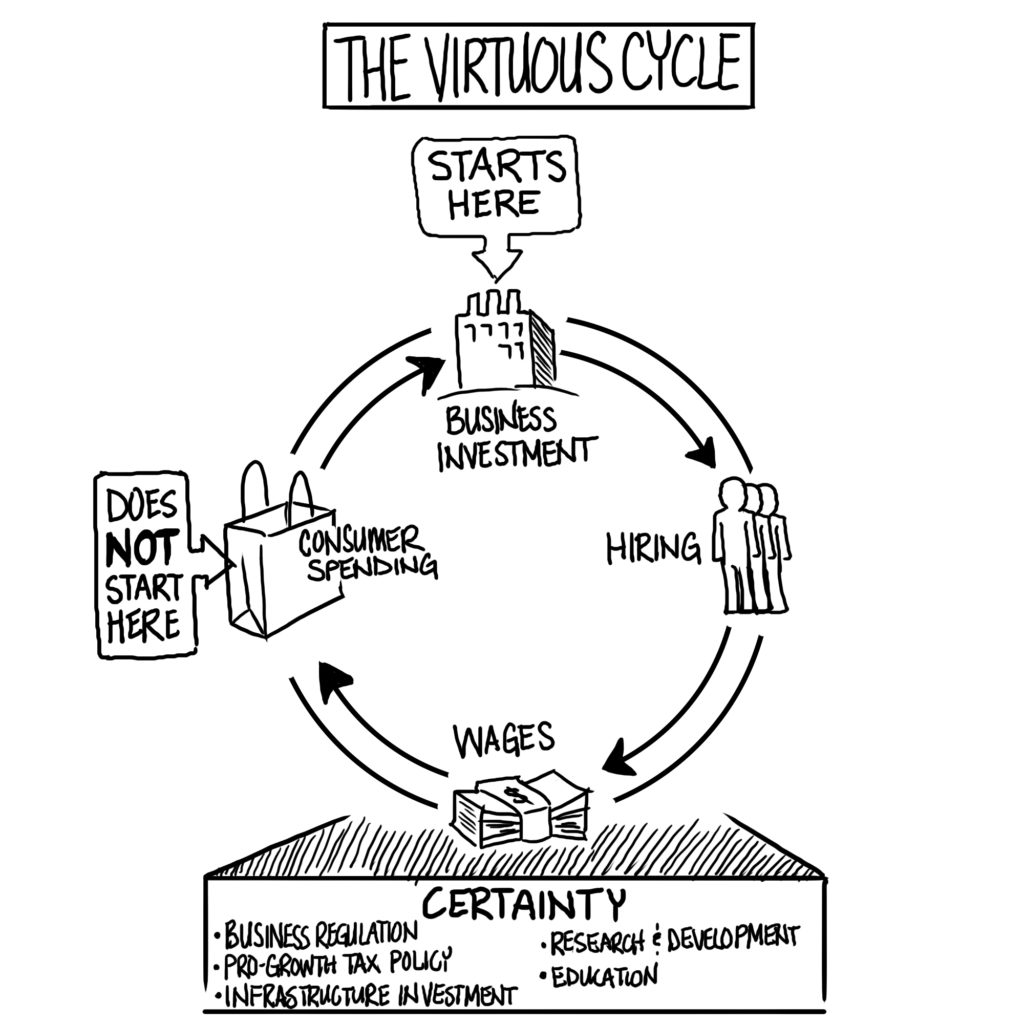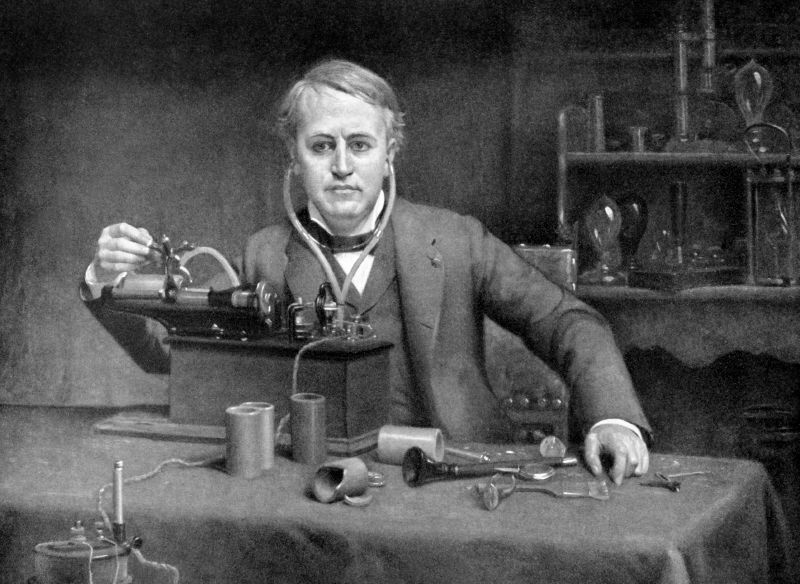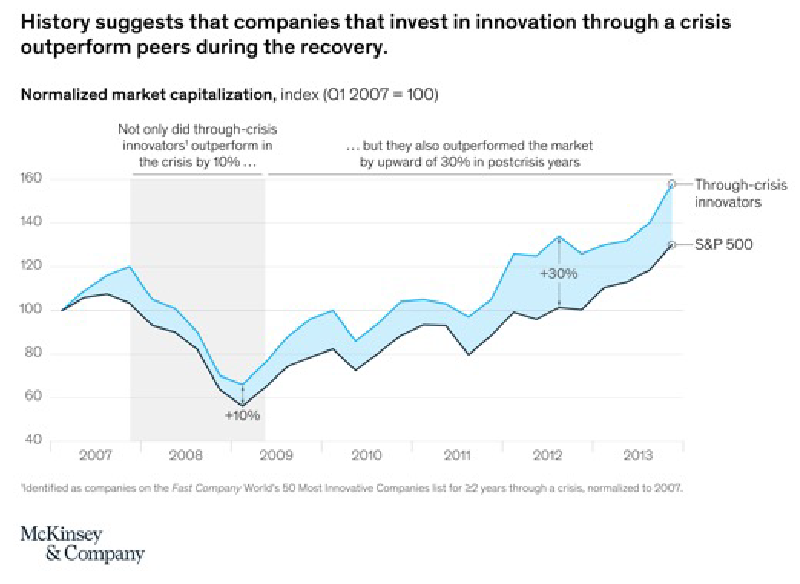
By the Numbers: “Participant Investing in Trillions of Wellness”
By Jason Leech
December 8, 2021

Our Director of Finance is back! This week’s post from Jason Leach takes a deep dive into the importance of continued innovation during times of struggle, and dual individual and business responsibility to take care of the health and wealth of society.
In previous blogs we discussed how hemp and hemp-based phytocannabinoids are a structural change to the U.S. economy. Hemp-based CBD grew to a $4.2 billion industry in 2019, up 7,000% from $59 million in 2014. [1] We also discussed how we’ve experienced nearly two years of health crisis on top of decades of poor lifestyle choices, and chronically poor health. We learned how chronic ill-health costs world economies an estimated $12 trillion annually, the size of China’s economy. We learned age and lifestyle-related chronic conditions including cardiovascular, neurological, musculoskeletal, mental, vision, and digestive ailments will represent almost all the trillions of growth in health burdens affecting advanced populations and economies over the next two decades. We also discussed how existing prevention and therapies could reduce the global health burden by 40% and provide a $12 trillion boost in global GDP by 2040. And, we learned the vast majority of the trillions in health gains are estimated to come from preventing disease, and hemp-based phytocannabinoids will have a supportive role there. [2]
We also discussed how the multi-trillion-dollar opportunity is open to us – individually and as companies. The last several years represented a different response to crisis than the two previous crises in the 21st century (the tech bust of 2000-2003 and the financial crisis of 2008-2009). In the previous two crises, we were spectators and speculators. The third crisis in 20 years has made us more acutely aware of resources, our dependence on them, and our responsibility as participants in how we manage them for our health and wealth.
We asked the question then: how are we going to be active participants in sustainable growth in coming decades? We must take personal responsibility to promote a re-organization of thinking, taking more personal responsibility as stewards for sustainability of societies, economies, and the environment, through our choices for consumption, health, and advocacy. For individuals, taking care of one’s health is now a social benefit – with real world health and wealth benefits.

Business participants in the $1.5 trillion wellness sector have an obligation to participate as well – to invest in innovative product development that can help our societies realize the trillions in life-changing health and wealth in a sustainable way. [3] In particular, during the coming years that will be dominated by age and lifestyle related chronic ailments, wellness companies have the obligation to ramp up investment in human capital (employees) and research & development (physical capital deployed to develop innovative new products). Remember the illustration I presented to show how economic value (and health and wealth) is created in a virtuous cycle? It starts with companies and business investment.
In late 2019 and during 2020, Zilis invested heavily in human capital and in particular its product development team, bringing aboard Gabriel Ettenson, MS, PT, former President and founding member of one of the first and largest CBD companies in the world, Marielle Weintraub, PhD, one of the world’s leading experts in hemp and cannabinoid science and current President of the U.S. Hemp Authority, and Joy Beckerman, a hemp Lifetime Achievement award winner, hemp-industry iconoclast, industry leader and one of the most knowledgeable people in the hemp world since the early 1990s. This team was put together to help Zilis innovate beyond its best-selling CBD oils, topicals, and mimetics lines that drove the company’s meteoric growth from its founding in 2015. Zilis made this investment when most companies were pulling back.
Our old friends at McKinsey recently held a podcast discussion with Laura Furstenthal and Erik Roth entitled “Innovation – The Launchpad out of Crisis.” In the podcast, Ms. Furstenthal, who works with healthcare organizations and innovation transformations, notes that, “Every successful innovation throughout history has come at the intersection of three lenses:
- an unmet customer need, or the ‘who’;
- a technology that generates a solution, or the ‘what’;
- and a business model that enables you to monetize that solution, which is the ‘how’.”

Using Thomas Edison as an example, she states:
“In every case, he did not just invent the ‘what’, he also invented a ‘how’. He was often not the first person to create the innovation, whether it’s the light bulb or the motion-picture player, but his unique contribution was to make it salable and scalable. In the case of the light bulb, he created the filament and the vacuum tube that allowed it to turn on and off, and he developed the production process that enabled mass production.”
Over the course of one year, during 2020/2021, the human and physical capital investment Zilis made in its Product Development team allowed it to leverage their combined knowledge and expertise, industry relationships, and years of customer feedback to develop an innovative, first-of-its-kind hemp-based cannabinoid wellness product to target multiple unmet customer needs. Over that time, the Zilis team developed a naturally sweetened and flavored, water soluble, hemp-based phytocannabinoid powder that may overcome some consumers’ aversion to oils or liquids.
Along with age, there are certain conditions known to be the main contributors to chronic ill health and trillions in annual healthcare costs across the world, as we’ve been discussing in this blog for 18 months. Addressing McKinsey’s first innovation “lens” (the “who” or unmet customer need), our new product development potentially meets multiple very significant wellness needs for millions of consumers across the multi-trillion-dollar chronic healthcare cost spectrum.
Zilis’ product development team also addressed McKinsey’s second innovation “lens” (the technology behind the solution or the “what”) utilizing an innovative new microencapsulated proprietary hemp blend which includes impactful levels of lesser known, naturally-occurring cannabinoids.
McKinsey’s third lens for successful innovation is a business model that enables business to monetize the solution. Ms. Furstenthal states that organizations often spend the least amount of time on building a scalable operating model to deliver on innovation. By its nature, Zilis has high operating leverage – small corporate overhead focused on product development with a distributed, de-centralized sales channel with network growth effects. Further, Zilis also has global exclusive rights for direct sales of the microencapsulated forms of this varin-rich extract.
Over the past year, Zilis undertook the investment in human capital and physical capital to develop one of the most innovative hemp-based phytocannabinoid products available on the market today, satisfying the three lenses Mckinsey cites as being the key to successful innovation: unmet customer need, innovative technological solution, and scalable operating model (Zilis is employing its direct sales business model to rapidly distribute the product to a broad consumer base). Like Edison’s filament and vacuum innovations to make the light bulb mass consumable, Zilis’ multiple innovations in cannabinoids, bioavailability, attractive portable delivery, and health benefits, in my opinion, makes this is the kind of “participant” investment in innovative product development that wellness companies have an obligation to make alongside individuals’ lifestyle “participant” changes to overcome trillions in chronic ill-health over the coming decades. It’s an opportunity for individuals and companies alike, and Zilis in putting our best foot forward with the introduction of Zilis UltraGlow powder sticks, developed through concerted investment during the biggest global health crisis in a century, with an eye towards improving health and wellness over the next 20 years.

A last bit from Mckinsey illustrating the benefits of business investment:
“We did some research looking at pre-COVID-19, during COVID-19, and the expectations for the post-COVID-19 environment, and we found that most organizations battened down the hatches during the crisis and focused on the core business, with the expectation that they would focus on innovation projects once they recovered from the crisis. So, we asked, is this the right thing to do? We looked across multiple crises, including the SARS epidemic that ravaged Asia and became the impetus for widespread adoption of online transactions, and back to World War II, when we saw rapid growth in manufacturing of convenience technologies to capitalize on the fact that women were working. During the financial crisis, stranded assets and an unemployed workforce spurred the sharing economy, among other things. The lesson is that those who innovate through a crisis come out stronger.” [2]

ATTENTION – Please go to IDS.Zilis.com for important and complete information regarding the income statistics for all Zilis Ambassadors.
Footnotes:
[1] Cannabidiol Market Size, Share & Trends Analysis Report By Source Type (Hemp, Marijuana), By Distribution Channel (B2B, B2C), By End Use, By Region, and Segment Forecast, 2019-2025 (Rep.). (2019, December). Retrieved June 26, 2020, from https://www.grandviewresearch.com/industry-analysis/cannabidiol-cbd-market#:~:text=Report%20Overview,22.2%25%20from%202019%20to%202025
[2] Remes, J., et.al. (2020, July). Prioritizing health: A prescription for posperity (Rep.). Retrieved August 31, 2020, from McKinsey Global Institute website: https://www.mckinsey.com/industries/healthcare-systems-and-services/our-insights/prioritizing-health-a-prescription-for-prosperity#
[3] https://www.mckinsey.com/featured-insights/the-next-normal/wellness
About Zilis’ Scientific Research & Development Department
Our Scientific Research and Development Department is headed up by Dr. Marielle Weintraub, a hemp industry expert. She holds a master’s and a PhD in Behavioral Neuroscience and is very active in many dietary supplement and hemp industry trade associations, including her role as the current President of the U.S. Hemp Authority. Dr. Weintraub is committed to the continued development of hemp-specific information and testing to fulfill the Zilis mission.
Zilis is the creator of UltraCell™, a CBD oil product derived from hemp. Based in Argyle, Texas, a suburb of Dallas-Fort Worth, Zilis is privately held. Visit zilis.com for more information.
SHARE THIS POST
ABOUT THIS BLOG
Discover : The blog with the lifestyle, nutrition, science, and history of the hemp industry.
It’s your go-to for the most up-to-date information on hemp, CBD, dietary supplements, and more! Check it out!







